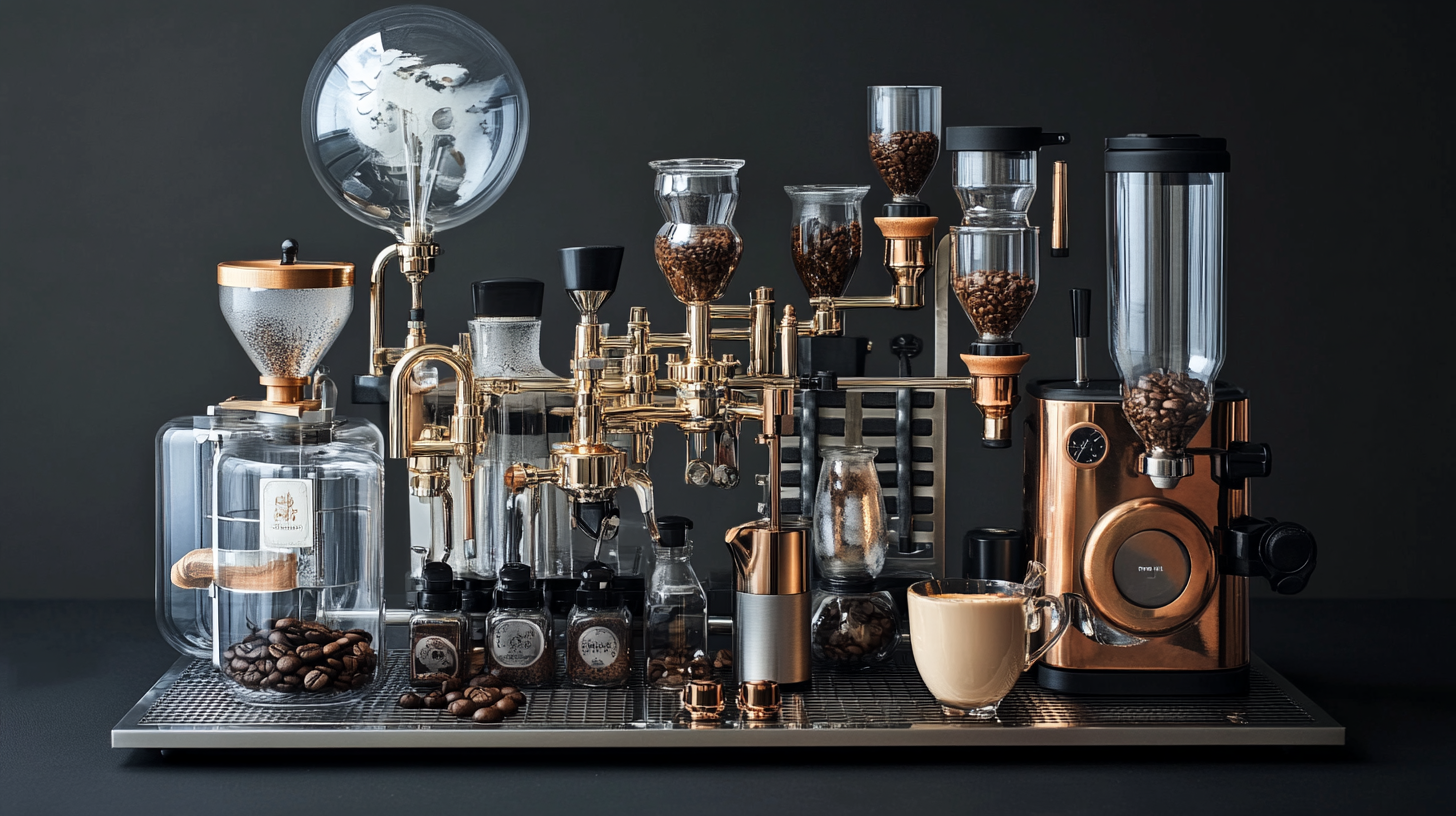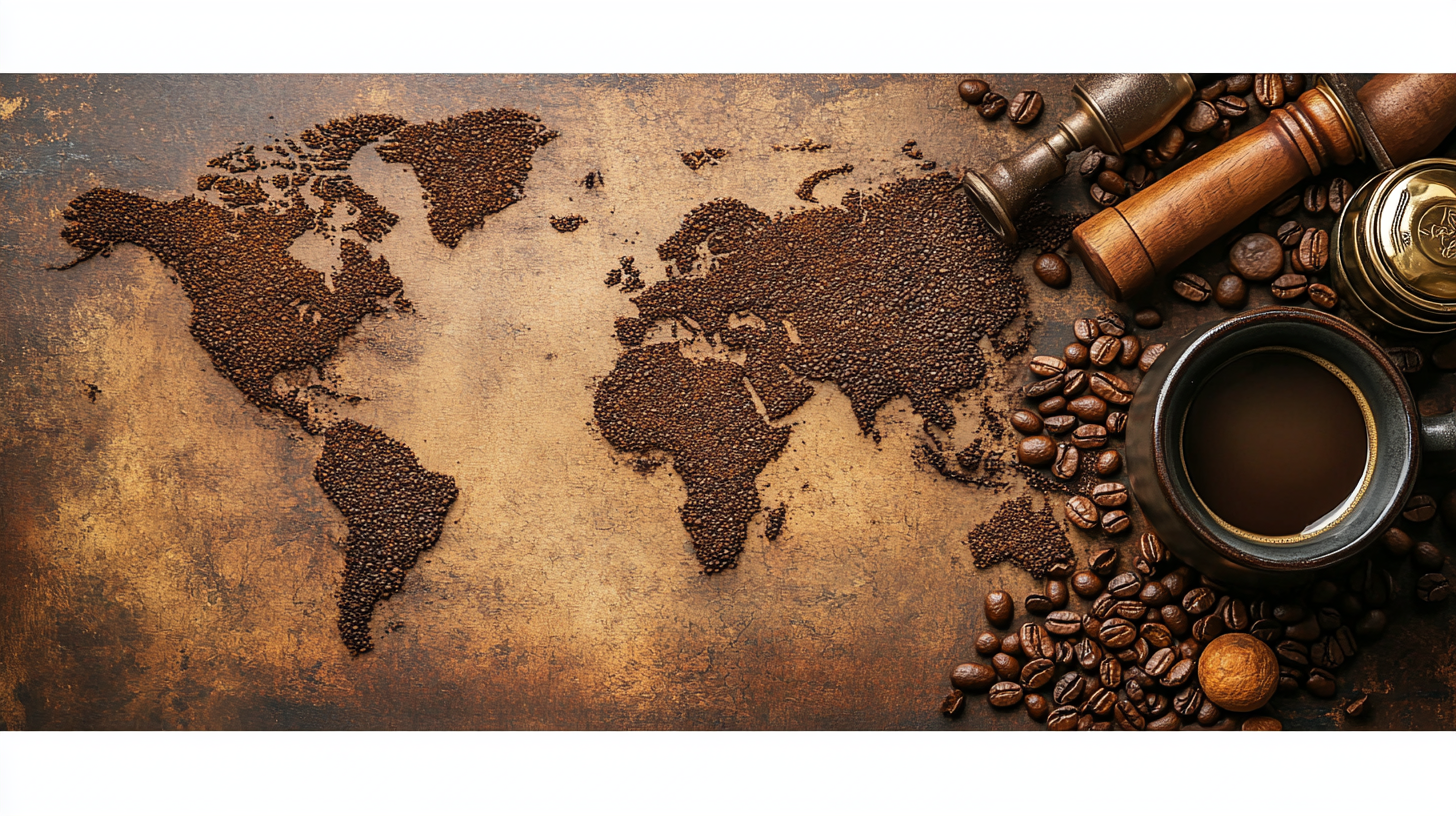Navigating Global Import Export Standards for Home Barista Equipment
In recent years, the global coffee market has witnessed a significant shift, with the rise of the "Home Barista" trend at the forefront. According to a report by Allied Market Research, the global coffee equipment market is expected to reach $22.71 billion by 2027, growing at a CAGR of 6.4%. This growth is fueled by the increasing number of coffee enthusiasts opting to create café-quality beverages in the comfort of their own homes. As the popularity of home brewing continues to soar, understanding the complexities of import-export standards for home barista equipment becomes paramount for both consumers and retailers.
Navigating the myriad of regulations and standards that govern the international trade of coffee-related products can be challenging. The complexities arise not only from varying country-specific regulations but also from compliance with quality and safety certifications that ensure consumer protection. A report from Research and Markets highlights that compliance with such standards can reduce the risk of product recalls and enhance brand reputation. Hence, as the Home Barista movement propels more individuals into the market, it is crucial to align sourcing strategies with global import-export standards to effectively meet consumer demand while maintaining quality and compliance.

Understanding the Importance of Compliance in Home Barista Equipment Imports
Navigating global import-export standards for home barista equipment is crucial for businesses aiming to thrive in the increasingly competitive market. Understanding compliance requirements is not just a matter of legality but also impacts the overall market strategy. According to recent industry reports, failure to adhere to regulations can lead to severe financial penalties and operational disruptions. For instance, countries are tightening their laws and imposing hefty tariffs on various imported goods, as seen with the Maldives planning to raise e-cigarette import taxes to 200% starting November 2024. This aligns with global trends where governments reinforce the importance of compliance to protect local markets and public health. The evolving landscape demands that importers of home barista equipment stay abreast of local and international regulations. Specific compliance requirements might include certifications for safety and quality, and any deviation could result in significant losses or even bans on certain products. A recent report indicated that non-compliance with environmental regulations in the European Union could lead businesses to incur fines up to millions of euros, reflecting an urgent need for businesses engaged in cross-border trade to understand and navigate their responsibilities effectively. Moreover, as industries move towards greater accountability, there are increased initiatives to regulate the supply chain, particularly for products that could pose risks to consumers. Reports highlight that under new regulations emerging in various countries, businesses that fail to meet compliance standards may face not only fines but also the possibility of entire product recalls. For home barista equipment imported from different regions, this means a thorough understanding of both exporting and importing legislation is paramount to prevent costly setbacks.

Key International Standards for Quality and Safety in Coffee Equipment
When it comes to setting up a home barista station, understanding international standards for quality and safety in coffee equipment is essential. Compliance with these standards not only ensures the safety of your brewing tools but also elevates the coffee-making experience. Key organizations like the International Organization for Standardization (ISO) and the American National Standards Institute (ANSI) have established guidelines that cover various aspects of coffee equipment, from materials used to energy efficiency.
Quality standards focus on the materials and construction of coffee equipment, ensuring that they are durable, non-toxic, and resistant to heat and wear. For instance, ISO 9001 emphasizes a consistent quality management system, which is crucial for manufacturers producing espresso machines, grinders, and accessories. This certification can assure consumers that the products they purchase meet rigorous quality checks, resulting in a better-performing home barista setup.
Safety standards are equally important, particularly regarding electrical appliances like coffee makers. Certifications such as UL (Underwriters Laboratories) and CE (Conformité Européenne) signify that a product has been tested for safety and meets specific electrical guidelines. These certifications can help consumers avoid potential hazards, ensuring that their coffee equipment operates safely within their home environment. By navigating these global standards, home baristas can make informed choices, ultimately leading to a safer and more enjoyable coffee brewing experience.

Navigating Customs Regulations: Tips for Smooth Importing Processes
Navigating customs regulations can often seem like navigating a labyrinth, especially when importing home barista equipment. To ensure a smooth importing process, one of the first steps is to familiarize yourself with the specific regulations of your target country. Each nation has its own rules regarding the import of goods, which can vary widely based on product type, material, and country of origin. Understanding these regulations helps prevent unexpected delays and additional costs that could arise due to non-compliance.
Once you have a grasp of the import regulations, the next crucial element is proper documentation. Essential documents typically include the bill of lading, commercial invoice, and packing list. However, for specialized items like barista equipment, you may also need to provide additional certifications, such as those confirming safety standards or environmental compliance. Being thorough with documentation ensures that your shipment passes through customs smoothly and can significantly reduce the risk of inspections or seizures.
Additionally, considering the role of customs brokers can be advantageous. These professionals are well-versed in the nuances of import regulations and can help navigate the complexities of customs procedures. By collaborating with a broker, you can streamline the process, ensuring that all paperwork is correctly filled out and submitted on time. This not only saves valuable time but also mitigates potential headaches that might arise from dealing with customs directly.

Assessing Environmental Regulations and Sustainability Standards for Barista Gear
In today's world, sustainability has become a pivotal focus in the import-export landscape, particularly for home barista equipment. The environmental regulations governing such products are critical not only for compliance but also for enhancing brand reputation among increasingly eco-conscious consumers. According to a report by the International Coffee Organization, the global coffee market is projected to reach $102.15 billion by 2025, emphasizing the need for sustainable practices that align with market growth.
One key area of regulation involves the materials used in producing barista gear. For instance, the EU's Ecodesign Directive mandates that products must be designed for durability, repairability, and recyclability. This has significant implications for manufacturers of items ranging from espresso machines to grinders. A study by the World Resources Institute indicates that improving product lifespan by just one additional year could reduce resource consumption by as much as 14%, showcasing the importance of sustainable design in the coffee industry.
In addition to materials, energy efficiency standards play a vital role in the import-export equation. Equipment that complies with the ENERGY STAR certification not only meets stringent environmental guidelines but also appeals to consumers looking to reduce their carbon footprint. With a report by the U.S. Department of Energy highlighting that ENERGY STAR products can save Americans more than $30 billion in energy costs annually, emphasizing energy-efficient choices is essential for businesses aiming to thrive in a competitive market. Consequently, navigating these environmental regulations becomes vital for home barista equipment suppliers who wish to align with sustainability standards and meet consumer demand for greener products.
Strategies for Building Strong Relationships with Global Suppliers and Manufacturers
Building strong relationships with global suppliers and manufacturers is crucial for businesses in the home barista equipment industry, especially as market dynamics continue to evolve. In recent years, the relationship between suppliers and manufacturers has shifted from a traditional transactional dynamic to a collaborative partnership model. This transformation is supported by findings from various industry reports, which indicate that companies embracing collaborative supply chain strategies have improved efficiency by over 20% and reduced costs by 15%.
As suppliers and manufacturers navigate global import-export standards, they are increasingly focusing on sustainability and transparency. A recent study highlighted that 75% of businesses are prioritizing sustainable practices within their supply chains, reflecting a growing consumer demand for eco-friendly products. By involving core suppliers in product development and decision-making processes, companies can foster innovation and meet regulatory requirements more effectively.
Moreover, the importance of supply chain transparency cannot be overstated. Industry analysts have noted that companies demonstrating high levels of transparency in their supply chains can enhance their market competitiveness, as they build trust with consumers and partners alike. Implementing technologies such as AI for real-time tracking and data sharing enhances collaboration, allowing businesses to respond swiftly to market challenges. The future of the home barista equipment market hinges on these strategic partnerships, as companies that successfully build strong ties with their suppliers will be better positioned to thrive in an increasingly complex global landscape.



